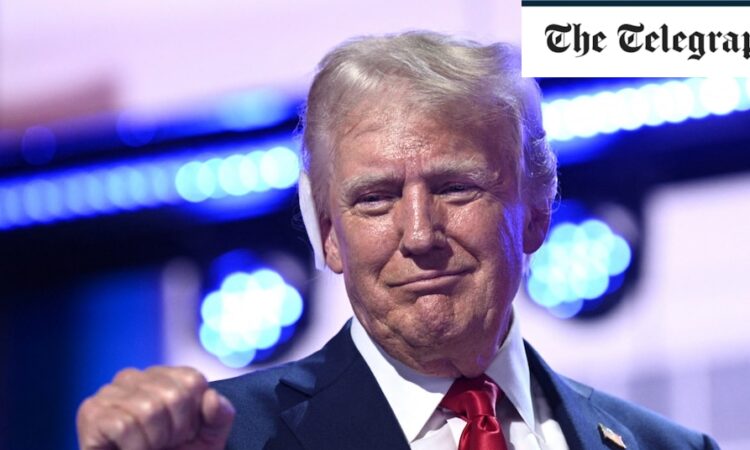There’s a battle for the future of Trump’s economic policy. Its outcome could reshape the world

The book’s release overlapped with Trump’s first run for the White House, when he was speaking and appealing to a similar demographic. Vance didn’t believe it at the time – but in his speech at the Republican National Convention this week, he insisted that Trump is “America’s last best hope to restore what, if lost, may never be found again”.
Yet what Vance advocates for the economy is not so much a restoration of what came before, as a far more radical version of Trump’s existing protectionist leanings.
For all of Trump’s talk of trade wars and “America First” during his first presidency (and there were certainly plenty of nods to this agenda throughout the four years), he took a relatively traditional Republican approach to the economy: pushing through tax cuts and promoting a more liberal business environment.
While Vance broadly agrees with creating a more liberal regulatory framework, tax cuts are by no means his priority. In an interview with the New York Times earlier this year, he laid out the case for more tariffs – going much further with protectionism in a bid to push up American wages.
It’s a noble goal, but his means for achieving it is also likely to weaken the purchasing power of the people it is meant to benefit: driving up prices is rarely a recipe for making people feel better off.
Trump’s choice of Vance has been seen as a signal by many Republicans that he would lean into the protectionism he flirted with last time he was in the White House. He was already floating the idea of a 10pc import tariff long before he chose his running mate.
But what might his team of roving economists say about this?
While Trump is being pushed in a protectionist direction by one side, more free-market thinkers in his orbit have been advocating for Trump to stick to tax. This spring, a group of his former economic advisers, including Larry Kudlow and Art Laffer, suggested that he consider a flat tax, while pushing back on the idea of going all in for trade wars.
It’s also hard to imagine that the recent endorsements from a host of billionaires were driven by enthusiasm for cracking down on trade. The assassination attempt on Trump last weekend led Elon Musk to pledge his support, while a series of venture capitalists have also made it known that they back him.






